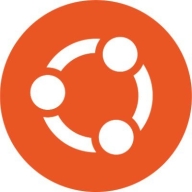

Ubuntu Linux and Debian are competing products in the realm of open-source operating systems. Ubuntu Linux has the upper hand due to its streamlined setup and robust support, which appeals to organizations seeking quick deployment.
Features: Ubuntu Linux features an enhanced software ecosystem, regularly scheduled releases, and strong hardware compatibility. Debian emphasizes stability, high-security standards, and a comprehensive range of software repositories that offer more extensive packages.
Ease of Deployment and Customer Service: Ubuntu Linux is known for its user-friendly installation and comprehensive official support, easing deployment for users with limited technical knowledge and offering extensive community resources. Debian involves a more complex initial configuration but allows for significant customization and community-driven support, ideal for those with advanced expertise.
Pricing and ROI: Ubuntu Linux does not charge for its OS but may have additional fees for commercial support, balancing costs with service levels and deployment speed. Debian's zero-cost model provides high ROI through its stability and minimal requirement for commercial support, making it budget-friendly for stable long-term operations.
| Product | Market Share (%) |
|---|---|
| Ubuntu Linux | 11.5% |
| Debian | 4.0% |
| Other | 84.5% |

| Company Size | Count |
|---|---|
| Small Business | 84 |
| Midsize Enterprise | 21 |
| Large Enterprise | 52 |
Debian is a reliable open-source operating system ideal for servers and desktops. With its wide array of packages and stable releases, it suits developers and organizations seeking dependable performance and security.
Debian stands out for its stability and extensive package repository, making it a go-to choice for developers. Its open-source nature ensures transparency and flexibility. Debian's package management system, APT, simplifies software installation and updates. Its security updates are regular and prompt, ensuring systems are protected. With support for multiple architectures, Debian caters to various environments from desktops to large-scale servers.
What are the key features of Debian?Debian is widely used in industries such as web hosting, scientific research, and education, where reliability and long-term support are priorities. Its flexibility allows it to be adapted for specialized applications in scientific computing or educational environments, ensuring it meets industry-specific technical requirements.
Ubuntu Linux is an open-source platform known for its robust security, ease of use, and rapid performance. Its lightweight design and comprehensive support system make it ideal for diverse IT environments, providing seamless management and scalability options.
Ubuntu Linux stands out with its open-source nature that allows extensive customization and access to a broad range of free software. It is widely praised for its stability and a vast package repository offering regular updates, enhancing its usefulness across different sectors. The platform is equipped with a lightweight design and excellent community support, making it scalable and easy to manage. While it could improve in areas like Windows software compatibility and user interface refinement, its benefits in enterprise management and development projects are undeniable. Improved documentation, better hardware integration, and enhanced third-party application compatibility are additional focal points to consider.
What are the key features of Ubuntu Linux?
What benefits should be considered from reviews?
Ubuntu Linux is prominently implemented in industries for tasks such as server management, application deployment, and software development. Its resource efficiency and open-source tool compatibility make it a favorite for programming, research, and cybersecurity. Companies frequently use it for web hosting, cloud services, and managing multi-user enterprise solutions.
We monitor all Operating Systems (OS) for Business reviews to prevent fraudulent reviews and keep review quality high. We do not post reviews by company employees or direct competitors. We validate each review for authenticity via cross-reference with LinkedIn, and personal follow-up with the reviewer when necessary.